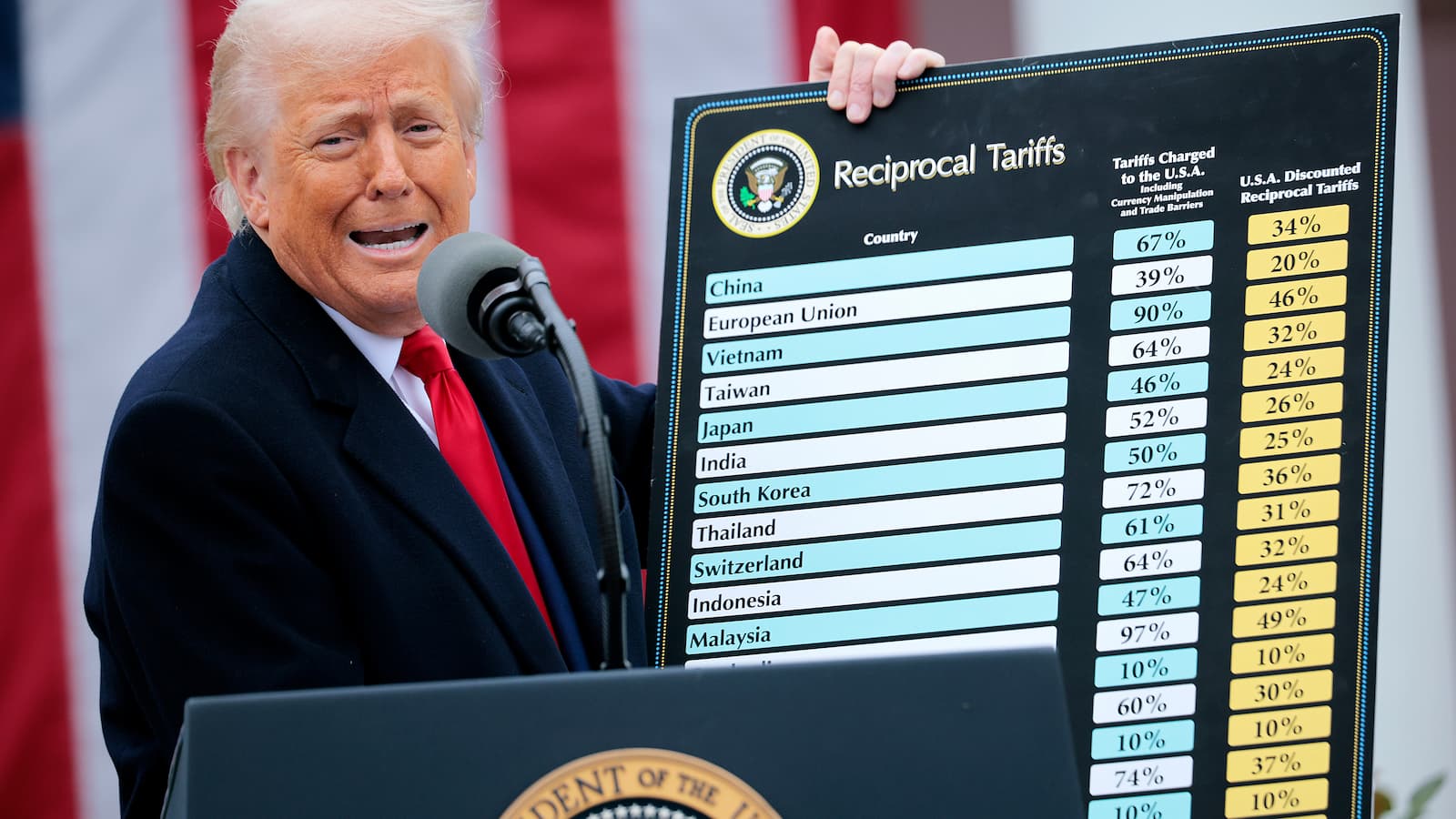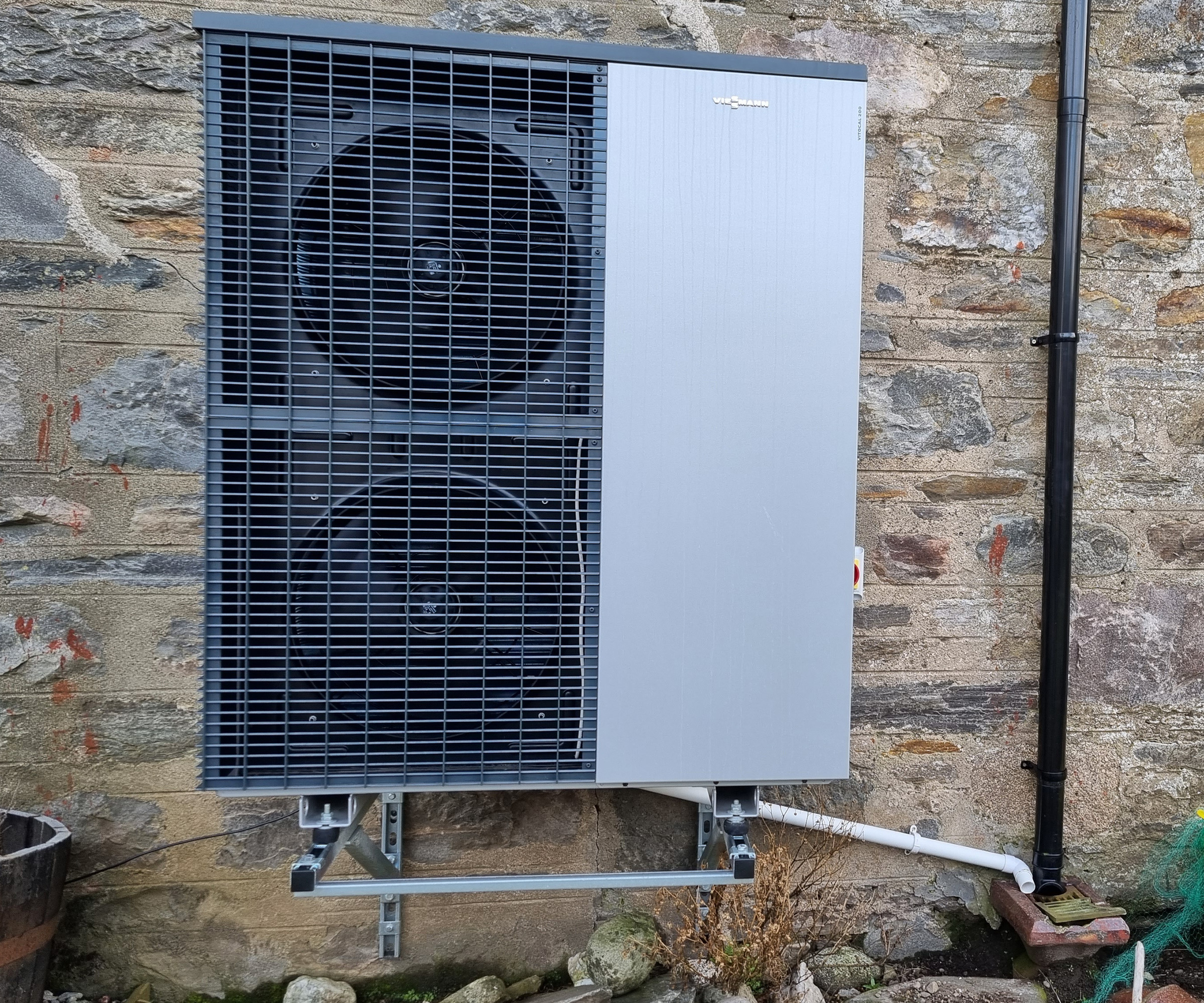Could Trump's trade war make green energy cheaper in the UK?
British households may be unexpected winners in the latest round of US-China trade tensions

As the US under President Donald Trump escalates tariffs on Chinese goods – particularly clean energy components – industry insiders say the UK could become a key alternative market.
The trade war may divert solar panels, batteries, wind turbine parts and heat pump components from the US to Europe, increasing supply and driving down costs.
So although the tariffs could lead to price increases elsewhere the tariffs could be good news for those looking to create an eco house.
Tariffs trigger global supply chain shift
The White House recently announced fresh tariffs on Chinese-made green tech, including solar cells, inverters, and electric vehicle parts – part of Trump's wider push to reduce reliance on Chinese manufacturing.
But this protectionist move is causing ripple effects far beyond US borders.
According to the International Energy Agency (IEA), China currently manufactures over 80% of the world’s solar panel components and 95% of heat pump compressors.
If these goods are no longer headed to the US, suppliers are expected to flood European markets with excess stock.
Get the Homebuilding & Renovating Newsletter
Bring your dream home to life with expert advice, how to guides and design inspiration. Sign up for our newsletter and get two free tickets to a Homebuilding & Renovating Show near you.
Falling costs across renewables
While heat pumps have been in focus - especially with UK grants of up to £7,500 available (through the Boiler Upgrade Scheme) – experts say other technologies will also benefit:
- Solar panels: Prices are already falling with costs dropping 73% in the last 10 years.
- Solar batteries: Tesla’s Powerwall competitors made in Asia are also expected to be redirected to Europe, potentially lowering costs for solar-plus-storage systems.
- Wind turbine parts: Although larger turbines are usually assembled locally, key parts such as blades and gearboxes could become more affordable.
An Energy UK spokesperson said: "We believe there could be an indirect impact on trade diversions – that is, components that were destined for the US now being diverted elsewhere resulting in lower prices for UK manufacturers."
What it means for UK households

For consumers, the result could be lower upfront costs for installing solar panels, batteries, or air source heat pumps – especially important as the UK moves toward its 2050 net zero goal.
Current heat pump installations cost around £12,000 to £15,000, while typical solar panels can cost upwards of £6,000. Any price drop could make a significant difference, especially in the face of high energy bills and economic uncertainty.
However, Martyn Bridges, Director at Worcester Bosch, said: "Most of the principle components required to manufacture our heat pumps come from Asia and Europe… we do not envision the costs of manufacturing our heat pumps to be [negatively] impacted by the US tariffs."
David Broom, Director at Kensa, added: "It’s still too early to know the full impact of the US tariffs, but with most of our supply chain based here in the UK and Europe, and no exports to the US, we don’t currently expect the tariffs will affect the price of our heat pumps."
Quality concerns and opportunities
Experts caution that price drops must not come at the expense of quality. UK and EU regulators will need to ensure imported technologies meet stringent safety and efficiency standards.
Nonetheless, there’s optimism that this shift could build momentum behind the government’s green energy goals.
“We need to think long-term,” said Energy UK, which represents suppliers like British Gas and EDF. “This is a chance to boost our domestic renewables sector and make homes more energy-independent.”

News Editor Joseph has previously written for Today’s Media and Chambers & Partners, focusing on news for conveyancers and industry professionals. Joseph has just started his own self build project, building his own home on his family’s farm with planning permission for a timber frame, three-bedroom house in a one-acre field. The foundation work has already begun and he hopes to have the home built in the next year. Prior to this he renovated his family's home as well as doing several DIY projects, including installing a shower, building sheds, and livestock fences and shelters for the farm’s animals. Outside of homebuilding, Joseph loves rugby and has written for Rugby World, the world’s largest rugby magazine.
